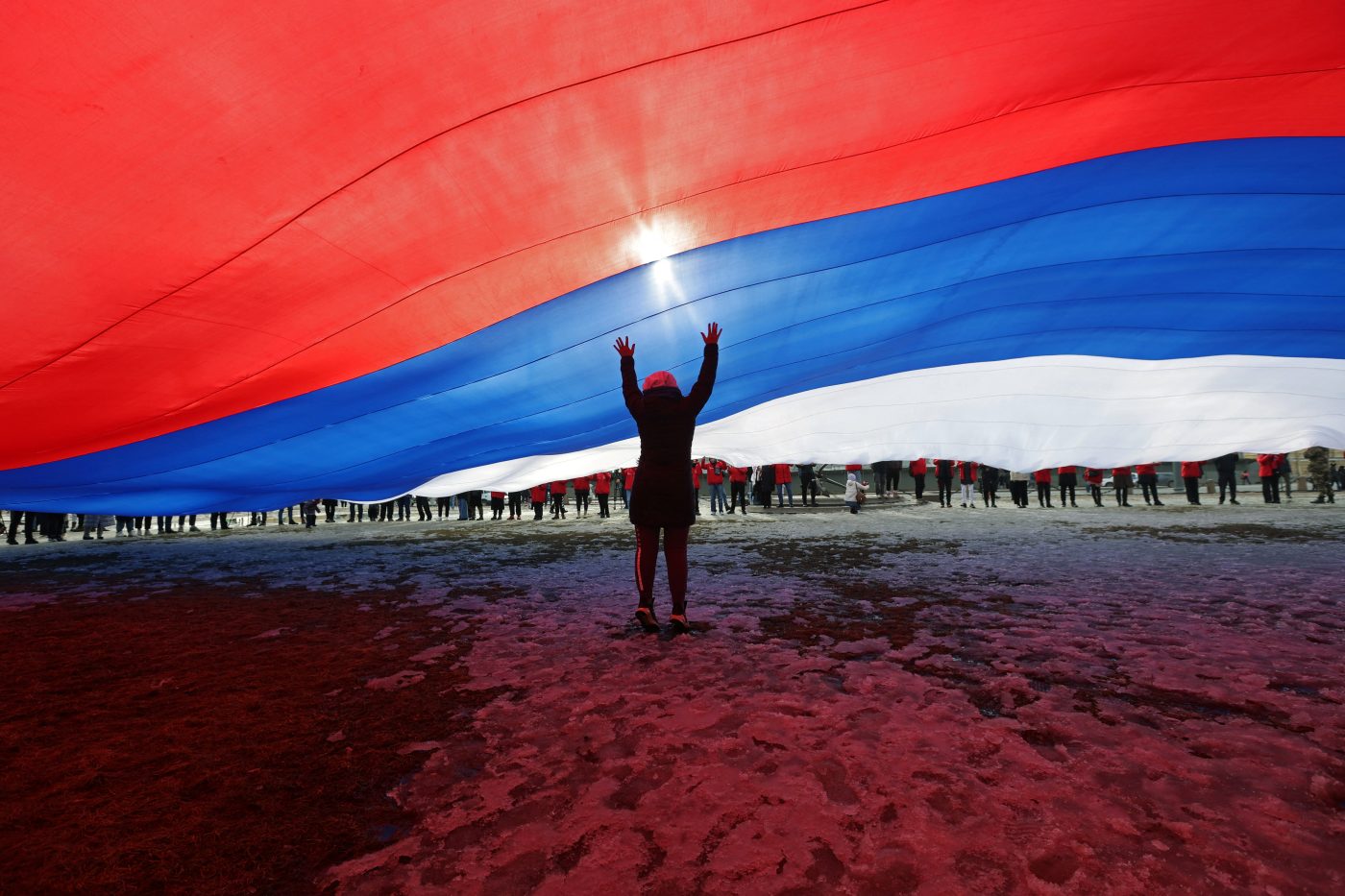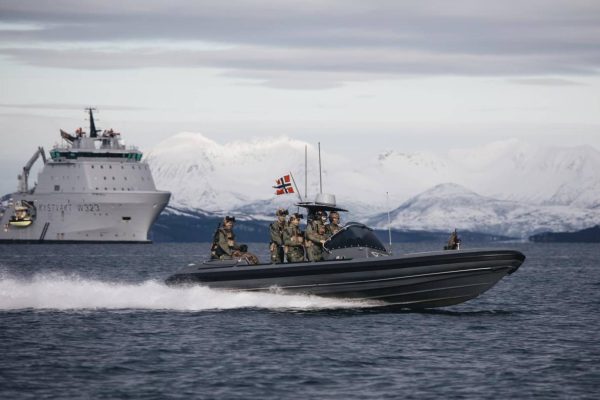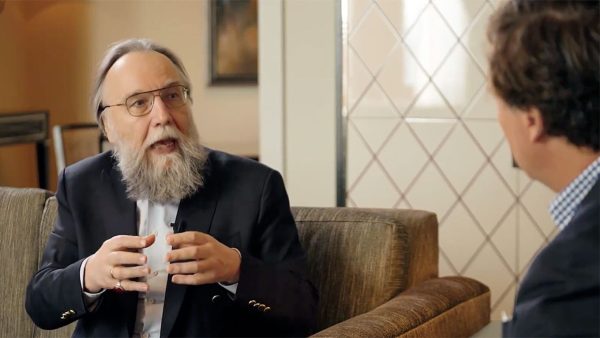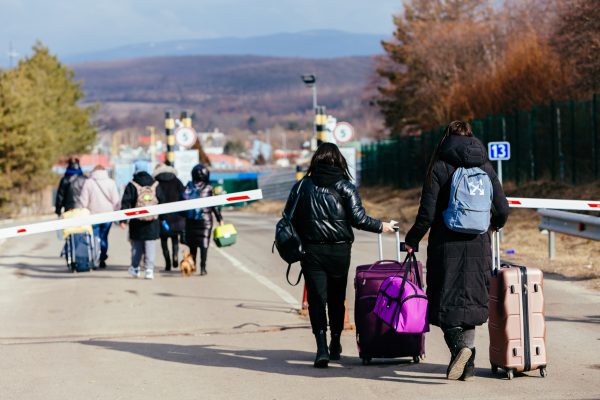Whenever a future Russia is imagined, it seems to be described in two ways. Either as a breakup into separate states or as a status quo state, largely unchanged. Proponents of a “disintegration” identify its possible benefits, first and foremost as a guarantee of Russia’s weakness and as a just punishment for its war of aggression against Ukraine.
The other end of the spectrum posits a Russia that is a persistent pariah and aggressor waging a war, or even multiple wars, led by an irremovable Putin or his autocratic successor, whoever that may be.
This deliberately simplified sketch of the future-of-Russia scenarios is of course an abridged version of all possible scenarios. It is though apparent that a vision of Russia respecting human rights and the international rules of peace and security is absent. This has a consequence — it means that all those inside and outside Russia, for whom a Russian state based on universal human rights values is the central vision, find absolutely no place in the scenarios being discussed.
Yet there are pro-democracy leaders in Russia and they are extremely brave people. Vladimir Kara-Murza and Alexei Navalny were famous enough in the West to have lived out a comfortable exile. Both were tailed by the FSB’s special poisoning unit and nearly died as a result of subsequent attacks; both chose to return to Russia and are now held in brutal conditions on fabricated charges and with long sentences designed to make the point that resistance to Putin’s regime is futile.
But where’s their army? There are in fact millions who support the broad ideas of liberal democracy. Let us be clear; this is nowhere near a majority, and indeed the polling evidence we have suggests it may only be 20% of the population.
But much of the opposition is concentrated in the intelligentsia and much of the intelligentsia has emigrated. More than 2 million Russians left the country in the first year after the all-out war began, with IT workers possibly composing a third of that number. Add in the 200,000 or so scientists who have left Putin’s Russia annually since the 2010s, and it’s clear that many among Russia’s brightest and best are already abroad. (Russian emigration numbers are almost certainly underestimated — even in 2019, more than half the 18-24 age group said they would like to leave the country.)
The conviction that aggression against Ukraine is an imperialist, criminal war, replete with atrocities and crimes against humanity committed by Russian troops is more widespread than any polls can tell us. (Take the leaked call in March between music producer Iosif Prigozhin and billionaire former senator Farhad Akhmedov in which they attacked Putin’s behavior and described him as Satanic — there is a chasm between public sanctimony and private belief.)
The public is frightened and wants to get behind the military effort even as the state intensifies its repression. Like rulers through the ages, Putin is the beneficiary of the patriotic upsurge that comes when the guns first sound. But that doesn’t last forever, especially not when the war, if not yet lost, is at least failing to make any visible progress whatsoever.
To many, including, understandably the majority of Ukrainians, the efforts of anti-war Russians, both emigrants or those inside the country, seem wholly insufficient. The war continues, there is no visible and large-scale protest, and the generally small anti-war rallies organized by emigrants seem puny compared to the scale of Europe’s biggest conflict in eight decades.
Such Russians are all too often viewed as small in number and incapable of mobilizing effective resistance. And while Ilya Yashin, Lilia Chanysheva Vladimir Kara-Murza, and others in Russia’s atrocious prison system talk of the need to re-establish the future Russian state on democratic principles, this can seem Quixotic.
And yet, this small band of democrats — and the people they inspire — may be all we have to oppose the reappearance, with tired familiarity, of Russian ultra-nationalism with its plots and policies for future conflict.
Work must begin — necessarily overseas — to draft policies to bring together anti-Putin, anti-war, anti-imperialist, and pro-democracy Russians so that when the opportunity comes they can present a coherent program for the country’s future and review its past.
Supporting Russian human rights organizations and many smaller civil society organizations exiled since 2022, as well as the initiatives founded by younger Russian exiles is now a strategic bet.
For many Russians who yearn for human rights and a future founded on the rule of law, the question of where they turn for change is becoming more and more important. If a united Europe and its North American allies can now build a vision and policies to help make a difference when change comes. And come it will.
As Kara-Murza wrote in September: “Next time the changes will come in the same way [as in 1905, 1917 and 1991] — abruptly and unexpectedly. None of us knows the exact moment and exact circumstances, but it will happen in the foreseeable future. The chain of events leading to these changes has already been launched by the regime itself in February 2022. The question is only one of time.”
Russia is Russia and nowhere else, but it’s worth recalling that the Czechoslovak Charter 77 human rights movement had fewer than 250 signatories when first launched. Small groups keeping alive the flame of hope can achieve more than anyone imagines.
Oxana Schmies is an analyst based in Berlin. She has held post-doctoral positions at the University of Erfurt, Humboldt University of Berlin, and the Center of Liberal Modernity (LibMod) in Berlin and is consulting for a range of international think tanks .
Europe’s Edge is CEPA’s online journal covering critical topics on the foreign policy docket across Europe and North America. All opinions are those of the author and do not necessarily represent the position or views of the institutions they represent or the Center for European Policy Analysis.





